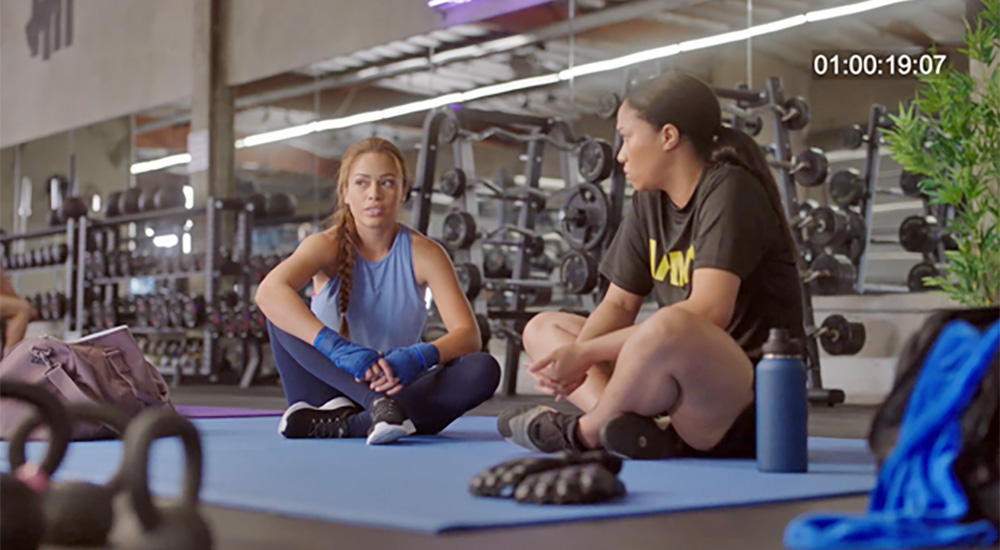One of VA’s top priorities is making sure that all Veterans have access to the good, steady jobs that they deserve. Unfortunately, data shows that women Veterans who served after 9/11 experience unemployment and underemployment at greater rates than their male counterparts and women Veterans of other eras. VA is fully committed to closing this employment gap for post-9/11 women Veterans, through a combination of targeted programs and supports that address both the causes and the outcomes.
The 2021 National Defense Authorization Act (NDAA) directed VA to conduct a study to better understand the root causes of this problem and begin to craft solutions to address it. Last year, VA’s Center for Women Veterans, Office of Women’s Health, and VA’s Quality Enhancement Research Initiative (QUERI) joined forces to do exactly that—researching health, geographic, military, and other factors associated with unemployment in post-9/11 women Veterans in order to inform policies and programs to address this gap.
What the Study Found
The survey, which included responses from 324 Women Veterans who served after 9/11, confirmed that employment was lower for post-9/11 Women Veterans than for male Veteran counterparts and non-Veteran women.
The study also found that:
- Women Veterans, on average, leave military service with higher education but lower rank than Veteran men.
- Post-9/11 women Veterans have a lower labor force participation than non-Veteran women; they also had less full-time employment and earn less than Veteran men.
- Physical and mental health problems are associated with higher unemployment rates in Post-9/11 women Veterans. Military sexual trauma, which affects one in five Post-9/11 women Veterans, is also associated with higher unemployment and lower labor force participation.
- Military transition is a difficult time for women Veterans and where employment disparities first occur.
- Education and training programs improve employment rates, but participation and outcomes of training programs have not been well quantified for women Veterans.
- Social determinants of health, such as self-confidence, social support, and housing stability, have a significant impact on employment for women Veterans.
Similar findings were reinforced by existing national data sets from the Department of Labor, Veterans Benefits Administration, the National Center for Health Statistics, and the US Census Bureau.
How VA is Closing the Gap
Improving Health Care for Women Veterans: VA is leaning forward to be responsive to the needs of Women Veterans. To support transitioning service women in beginning their VA health care journey, VA developed the Women’s Health Transition Training. As part of the Deborah Sampson Act, VA retrofitted existing medical facilities to better support women Veterans and staffed every VA medical center with a full-time Women Veterans Program Manager. VA has also improved access to care and benefits for survivors of military sexual trauma (MST) by expanding MST counseling to former Guard and Reserve members, treating the physical health conditions of MST, and improving the claims process for MST survivors at the Veterans Benefits Administration.
Expanding Economic Opportunities: In addition to improving the care that VA delivers to women Veterans, we are also committed to ensuring that women Veterans have the resources that they need to address the specific economic challenges they face. Through the Center for Women Veterans, we are continuously conducting outreach events, training programs and collaborating with VA Office of Outreach, Transition and Economic Development to connect women Veterans to the resources they need to gain meaningful employment, including Veteran Readiness and Employment (VR&E) and Education and Career Counseling.
VA also recognizes that entrepreneurship is another powerful way to close the economic gap that Post-9/11 women Veterans face. Through the Office of Small & Disadvantaged Business Utilization’s VetBizLadyStart program, VA is expanding opportunities for women Veterans with small businesses to work with the Federal government. This 14-week program helps women Veterans to build the skills they need to succeed as entrepreneurs and the networks of peers and mentors that support and guide them to success. As a result of this program, VA’s database of women Veteran-owned business has grown from 700 before the program to 2,300 today.
Air Force Veteran Jackie Lopez was among the women Veterans who was helped by the program, saying, “I knew this program would help me better understand the VA organization at a more granular level. I wanted to understand where my projects and my work would fit into the bigger picture so I could eventually expand my own footprint in VA.”
Liseth Velez, an Army National Guard Veteran, added that, “Being able to talk to other women who are in the same place as you is very beneficial.”
And Venus Quates, an Air Force Veteran, echoed their sentiments, saying: “It’s important to have sounding boards, people who have gone through the same things you have. It saves you making mistakes.”
As the fastest growing cohort of Veterans today, women Veterans deserve VA’s relentless efforts to continue to close the economic gap that they face once they re-enter civilian life. Through continuous improvements in the care that they receive from VA and innovative programs like VetBizLadyStart, VA will stop at nothing to close this employment gap for Post-9/11 women Veterans and make sure that they get the jobs they deserve.
In order to succeed in these initiatives, we need to hear from you! If you are interested in giving us feedback on your experiences, barriers and needs in the employment arena please contact us at: 00w@va.gov.
Topics in this story
More Stories
Fewer female Veterans were homeless in 2024 than in 2023, but VA is committed to reducing that number to zero.
With robotic surgeries Veterans experience less pain during recovery, shorter recovery period and a lower risk of infection.
The Edith Nourse Rogers STEM Scholarship allows eligible Veterans using the Post-9/11 G.I. Bill or dependents using the Fry Scholarship to receive added benefits.





